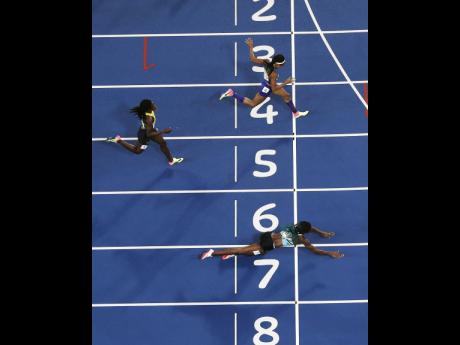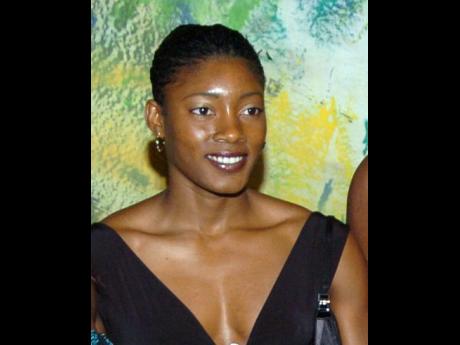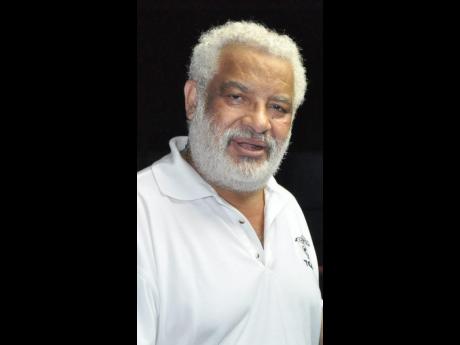Nothing to question about Miller's win, say experts
The women's 400m final at the 2016 Rio Olympics is turning into one of the most controversial races in recent memory.
Watched by thousands who saw the Bahamas' Shaunae Miller dive across the finish line 700ths of a second ahead of the United States' Allyson Felix, Miller's finish has sparked memes and comments about her aptitude at both running and diving.
The International Association of Athletics Federations' (IAAF) Rule 164 states that "athletes shall be placed in the order in which any part of their bodies (i.e. torso, as distinguished from the head, neck, arms, legs, hands or feet) reached the vertical plane of the nearer edge of the finish line".
Earlier that evening, Brazil's Deer Antonio Sousa qualified for the semi-finals of the men's 110m hurdles in similar fashion as he dove across the line in fourth.
Doctor of sports medicine, Dr Paul Wright, told The Gleaner that while the rules are specific, there should be clarification so that nothing can be left to interpretation.
"We need to look at the rules and make sure it's the first person on their feet. I don't want the first person through the air. This one is fine. It's legal, it's going to be accepted, but I think we should look at the rules at the next meeting of the IAAF," he said.
"Your feet should be on the ground, it shouldn't be a dive because this was clearly a dive," he said.
IAAF-certified Level One technical official, Bruce James, said that the incidence of athletes is high enough that it would already have been addressed by the IAAF if it was an issue.
"There are a number of things they (IAAF) don't want people to do. They don't want you to impede, to jostle, or obstruct anybody. Those are things they have stopped," said James.
"It happened at the US trials. If it was against even the spirit of running, the IAAF would have been addressed because it has been going on for almost 100 years, even at the highest level," he said.
Excelsior High School's track and field head coach, David Riley, said the controversy is only among those who watch track and field occasionally.
"This is not from people who watch the sport week in and week out and know what it takes to win a gold medal," said Riley.
"She (Miller) gave her last energy. That's what I want to see from my athletes. I want to see you try to win, whether you want to call it a lean or a dive. So many times people lose a medal because they didn't lean," he said.
Miller and Wright both agreed that much of the controversy lay in who Miller beat.
"Allyson (Felix) is the one who lost and she has become the darling of the sport, but aside from that, it has precedent. It was done twice before on the day. I will stand up when the anthem is being played, but I am uncomfortable with how the rule is being articulated," said Dr Wright.
"I think the conversation should be 'Is Shaunae okay, she fell'.' I like Felix, but she has to go out of the sport with a silver medal," Riley concluded.
Lacuna Gelding-Clarke, who finished fifth in the 100m hurdles event at the 2004 Athens Olympics, commended Miller on her presence of mind.
"It is anyway possible that you can win and you don't go out there to lose or to come second. It's the attitude. She really worked hard. Everyone worked hard, but she found a way to win the race, and to dive across the line it's commendable to just win the gold medal," she said.





